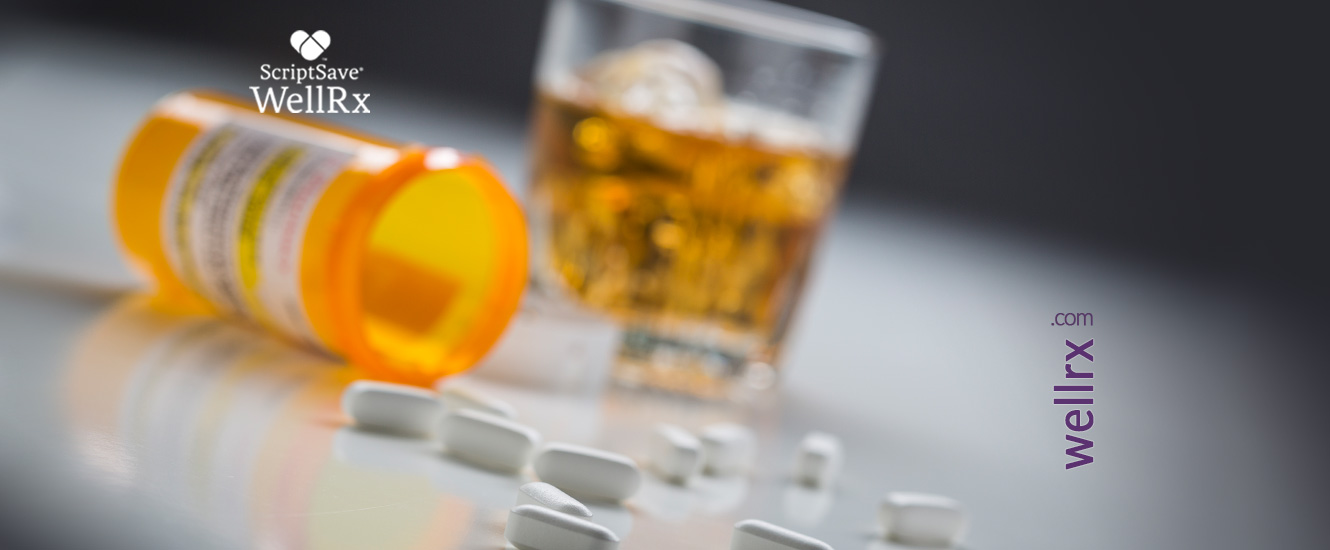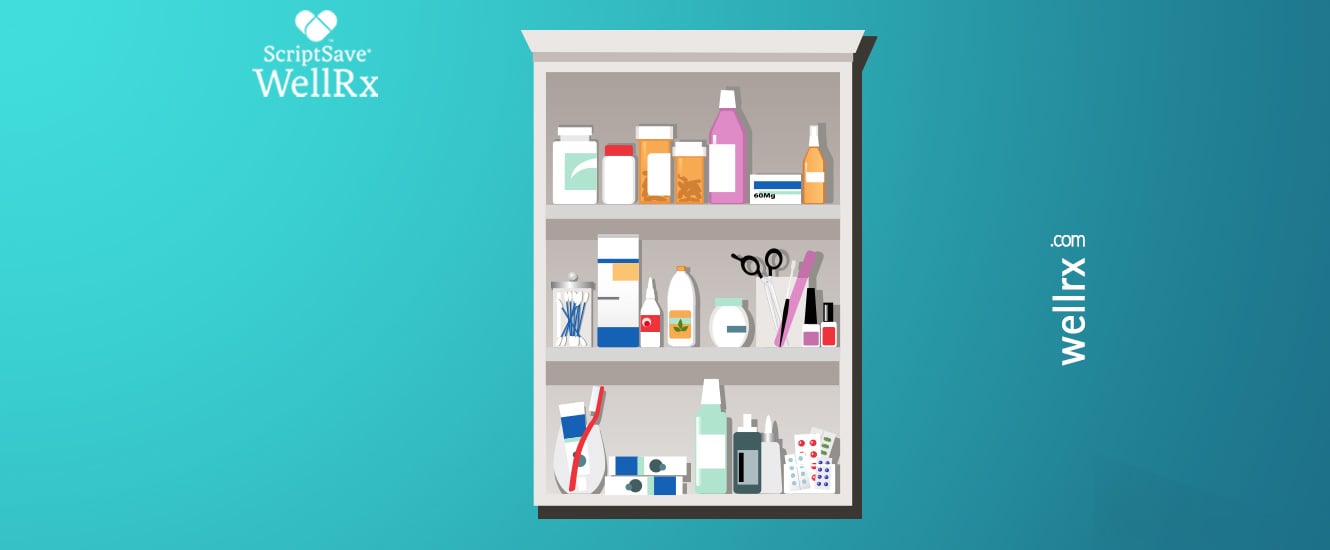Although the current pandemic may curtail the large family gatherings traditional during the holiday season, you may still celebrate with a smaller group of family members who live with you. This year, smaller gatherings may include the occasional rum punch or glass of wine, but before you imbibe, read on to learn about medications that should not be mixed with alcohol.
How Does Alcohol Move Through Your Body?
When you drink an alcoholic beverage, the alcohol is absorbed and metabolized as it moves through your body. When alcohol reaches your stomach, a small amount is metabolized by the stomach. The rest of the alcohol goes into the intestines and is absorbed into your bloodstream. Once the alcohol is in the bloodstream, it acts in the brain and may give you the buzzy or intoxicated feeling you get after drinking. It then travels to the liver, where it is metabolized and eliminated.
How Medications Interact with Alcohol
Many medications can interact with alcohol. Depending on how a drug is metabolized, alcohol can decrease the effects of the medication, increase its effects, or even make it toxic. Alcohol may also dangerously increase the side effects of the medicine.
Because your liver metabolizes alcohol, medications processed through the liver can compete with alcohol for metabolism. If the alcohol uses up the enzymes needed to clear the drug, the medicine may remain active longer than necessary and increase your risk of toxicity and side effects.
Long-term use of alcohol can have the opposite effect. Chronic drinking can activate enzymes in the liver that help metabolize some drugs. When this happens, your liver clears the medications more rapidly, and you do not get the necessary benefits of the medicine.
Additionally, alcohol adds to the drowsiness and inhibitory effects of some medications. Mixing alcohol with other medicines that make you drowsy increases your risk of respiratory or central nervous system (CNS) depression. On the flip side of the same coin, some medications may decrease the metabolism of alcohol and increase the intoxication effects of alcohol.
The following are examples of how alcohol interacts with specific medications:
Sleep Medication
You should never mix medications that help you sleep with alcohol. Because alcohol depresses your central nervous system like sleep medications do, drinking alcohol while taking sleep medicine increases your risk of excessive sedation and potentially fatal slowing of breathing.
Sleep medications that interact with alcohol include:
Anxiety Medication
Many anxiety medications interact with alcohol in the same manner that sleep medications do. Alcohol and anxiety medications may increase your risk of CNS and respiratory depression.
The following are examples of anxiety medications that interact with alcohol:
Antidepressants
Tricyclic antidepressants (TCAs), such as amitriptyline (Elavil) and doxepin (Sinequan, Silenor), can produce higher levels of drowsiness if mixed with alcohol. Also, alcohol can inhibit the metabolism of amitriptyline, causing the medication to build up in your bloodstream and increase your risk of toxicity and overdose.
Other antidepressants known as monoamine oxidase inhibitors (MAOIs) interact with alcohol differently. When MAOIs are mixed with tyramine present in red wine and some beers, they can raise your blood pressure to dangerously high levels.
Examples of MAOI antidepressants include:
Muscle Relaxants
Many muscle relaxants can cause drowsiness and dizziness. When you add alcohol, the effect can feel as if you have taken an opioid drug. You may feel over sedated, extremely weak, dizzy, agitated, or confused.
Muscle relaxants that interact with alcohol include:
Pain Medication
Whether you are taking prescription pain medication or over-the-counter medicine, you should be aware of how alcohol interacts with pain medication. Opioid pain medication, including hydrocodone and oxycodone, can cause drowsiness. Mixing alcohol with opioids increases their sedative effects and can slow down your breathing to a dangerously low rate.
Over-the-counter pain medication, such as acetaminophen (Tylenol), ibuprofen (Motrin), and naproxen (Aleve), should also be avoided if you drink alcohol. Acetaminophen and alcohol are both metabolized by the liver. Alcohol increases the activity of an enzyme in the liver that increases the production of a toxic byproduct of acetaminophen. Mixing alcohol and acetaminophen increases your risk of liver damage.
Nonsteroidal anti-inflammatory drugs (NSAIDs), such as ibuprofen and naproxen, can cause stomach ulcers and stomach bleeding. Alcohol can add to this effect and increase your risk of ulcers and bleeding.
Diabetes Medication
If you take diabetes medication, keep in mind that many alcoholic beverages are high in sugar content and can throw your blood sugar levels out of balance. Additionally, some diabetes medicines, such as glyburide, may cause a disulfiram-like reaction when combined with alcohol. Symptoms of a disulfiram-like reaction include:
- Extreme flushing
- Low blood pressure
- Rapid heart rate
- Severe nausea and vomiting
Mixing metformin (Glucophage) with alcohol can cause a buildup of lactic acid in the bloodstream and result in symptoms such as:
- Abnormal breathing
- Confusion
- Decreased urination
- Severe low blood pressure
Antibiotics
Isoniazid and rifampin are typically used together to treat tuberculosis. Each can interact with alcohol in different ways. Isoniazid can potentially cause liver damage. Drinking alcohol while taking isoniazid can increase your risk of liver damage. Additionally, alcohol may decrease the availability and the effects of rifampin and isoniazid.
Metronidazole (Flagyl) may cause a disulfiram-like reaction if taken with alcohol. You should not drink alcohol for 24 hours before and 72 hours after taking metronidazole.
Alcohol is a drug that interacts with many medications. The medicines discussed here do not include all the medications that interact with alcohol. Before pouring a drink this holiday season, be sure to ask your pharmacist if your medication is safe to take with alcohol. You will enjoy your holidays better without unpleasant or dangerous side effects.
Rosanna Sutherby is a freelance medical writer who has been a practicing pharmacist in her community for close to 20 years. She obtained her Doctor of Pharmacy from Nova Southeastern University in Ft. Lauderdale, FL. She utilizes her clinical training in the pharmacy, where she helps patients manage disease states such as asthma, diabetes, heart disease, hypertension, and many others. Dr. Sutherby reviews and recommends drug regimens based on patients’ concurrent conditions and potential drug interactions.
References:
https://www.wellrx.com/news/5-most-common-pharmacy-questions/
https://pubs.niaaa.nih.gov/publications/arh23-1/40-54.pdf
https://www.niaaa.nih.gov/sites/default/files/publications/Harmful_Interactions.pdf
https://www.albertahealthservices.ca/assets/healthinfo/AddictionsSubstanceAbuse/hi-asa-beyond-abcs-alcohol-medical-interaction.pdf
https://umem.org/educational_pearls/487/#:~:text=There%20are%20a%20number%20of,accompanied%20by%20tachycardia%20and%20hypotension.
https://www.ncbi.nlm.nih.gov/books/NBK470202/













 Store & manage your medication list
Store & manage your medication list Medication pricing updates
Medication pricing updates Pill & refill reminders
Pill & refill reminders Medication journal & mood log
Medication journal & mood log